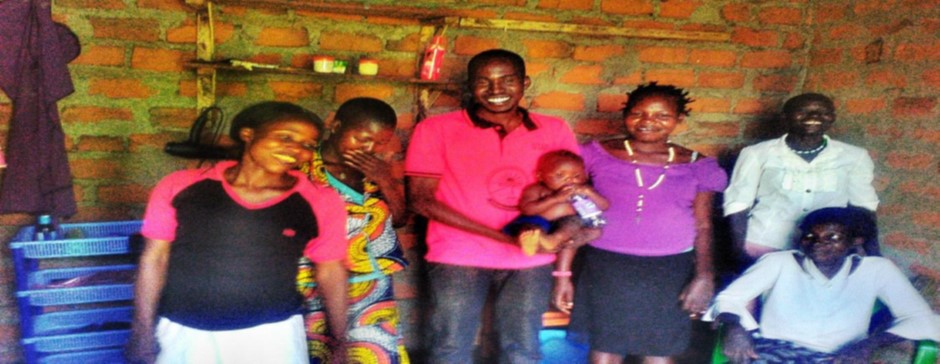In Gulu District and Omoro district during June, Musema Faruk, the ETC @ GDPU project officer, carried out the first Knowledge Sharing and Planning meeting with the four pilot groups.
The meetings were aimed at identifying needs and gaps to be addressed in order to improve and develop their business enterprises. Once identified. step two is to engaging each group in tailor made trainings to address and solve the issues raised.
The planning meeting was based on three core areas:
Skills Gap: to identify their skills gap and design training to address them
Business Skills Gap: to identify the gaps in areas of business management skills and how to deal with surrounding environment.
Material/Tools Gap: what materials and tools will each group need to fill those gaps and how will they pay for them?

Knowledge sharing meeting with Nyeko Rac enterprise and Rwot Aye Twero knitting enterprise at Acet centre in Odek sub county, Omoro
This is a summary of Faruk’s report on the meeting
Skills gap
Hairdressing
Skill training in plaiting/ dreadlock plaiting.
Skills training in styling
Fear of taking risk and self-esteem.
Sweater weavers
Skill training support in open sleeve sweaters knitting
Skills training in using sewing machine.
Business skills gap
Group dynamic: problems in handling members
Lack of Savings culture
Material support
One additional knitting machine
Sewing machine for joining sweater. they get delays from tailors who join their sweater’s and sometimes they spoil their sweaters
Generator for hairdressing because of power shortage

Faruk also shared with the groups, the three questions raised on the ETC website in May, that is:
- What do you need to run a sustainable small business in Gulu district?
- What do you need to set up a small business and keep it going?
- What do you need to succeed in a small business in that district if you are disabled?

Next Steps:
Suggestions for future training:
The two groups made these suggestions for the future training that they need to meet those three questions:
- Skills training in plaiting, pencil and styling hair
- Skills training in dreadlock plaiting.
- Skills training support in open sleeve sweaters knitting.
- Skills training in sewing and joining sweaters.
- Training in village savings and loan association within the enterprise.
- Training in financial literacy covering areas of business plan, budgeting.
- Conflict resolutions related to group dynamics etc.
Implications:
Hairdressers
Improvements in plaiting, pencil braiding and styling hair will not bring big cost implications for the future and should develop the Nyeko Rac customer base.
Sweater Weavers
Rwot Aye Twero want to expand and include open sleeve sweater knitting, but lack skills and knowledge. Greater demand for their work will also require another knitting machine to produce it.
At present, once the sweaters are made they are joined by others, often not very well. Having their own sewing machines would not only solve this problem but also open up other areas of income generation; school uniforms for example. But acquiring new knitting and sewing machines and training in their use is ambitious and will make considerable demands.
General
Both groups need access to electricity, probably through portable generators but owning such equipment brings inevitable security problems,
Faruk reports that fear of taking risk and low self-esteem might well hold both groups back in taking the next steps, careful psycho-social support will need to be part of the pilot and subsequent programme.
Groups Five Years Plan
The two groups also put together provisional five-year plans, which are interesting for their willingness to be as diverse and enterprising as possible and their continued willingness to help others with disability:
- Open up produce business for sale of Agricultural products
- Open up a wholesale shop for saloon products to supply the all of Omoro district.
- Create employment to fellow youth with disabilities
- Engage in livestock farming
- Training in all forms of plaiting, pencil and styling